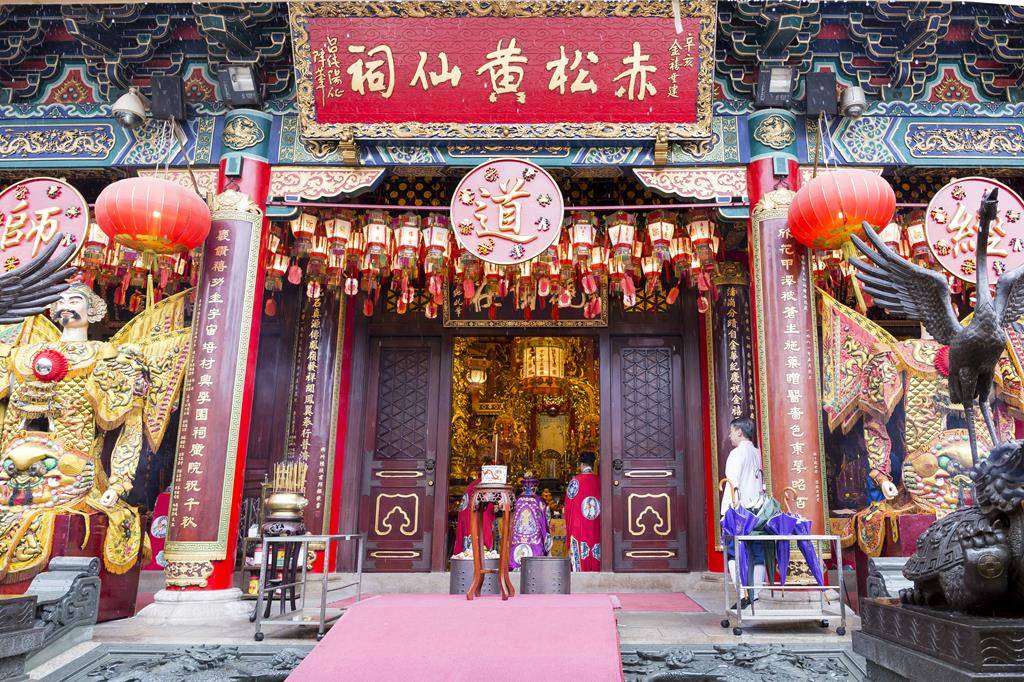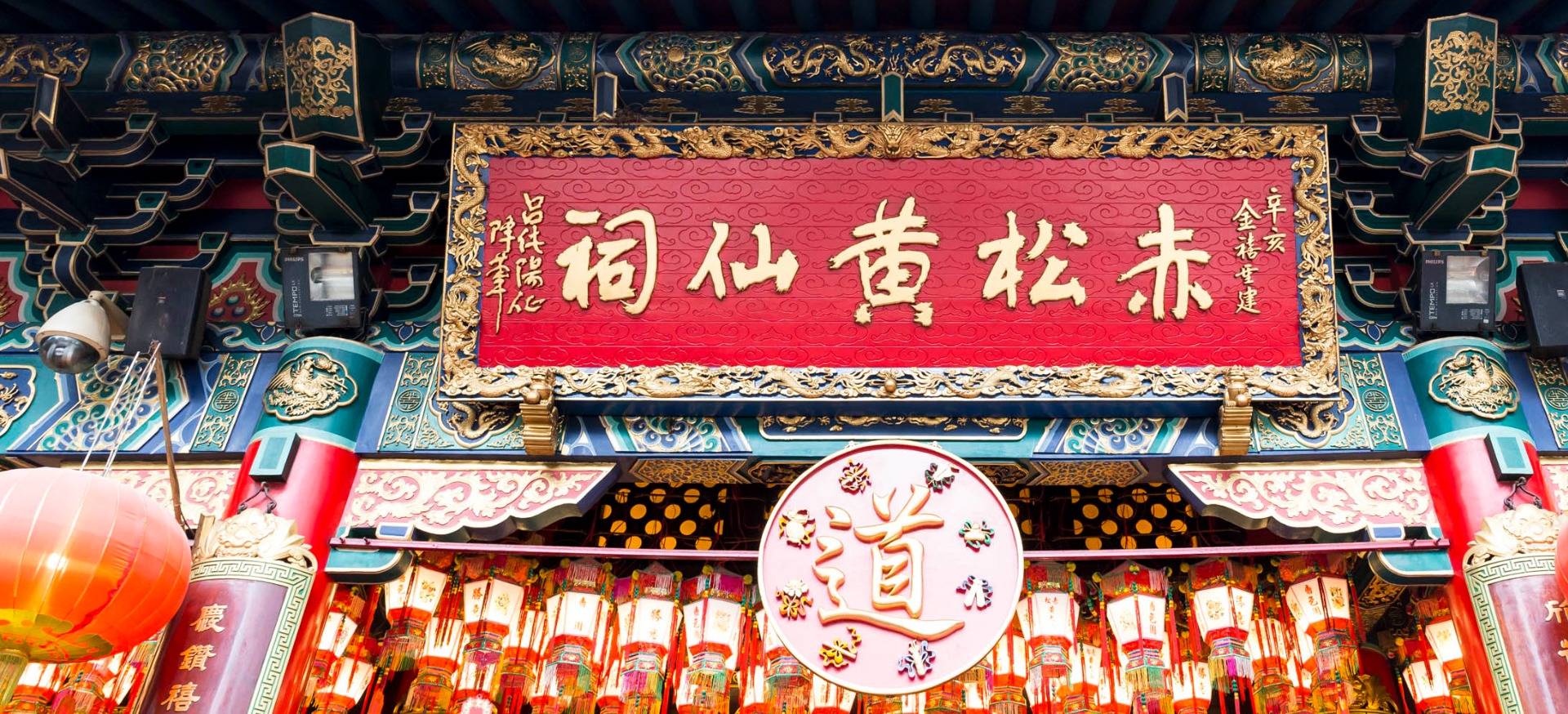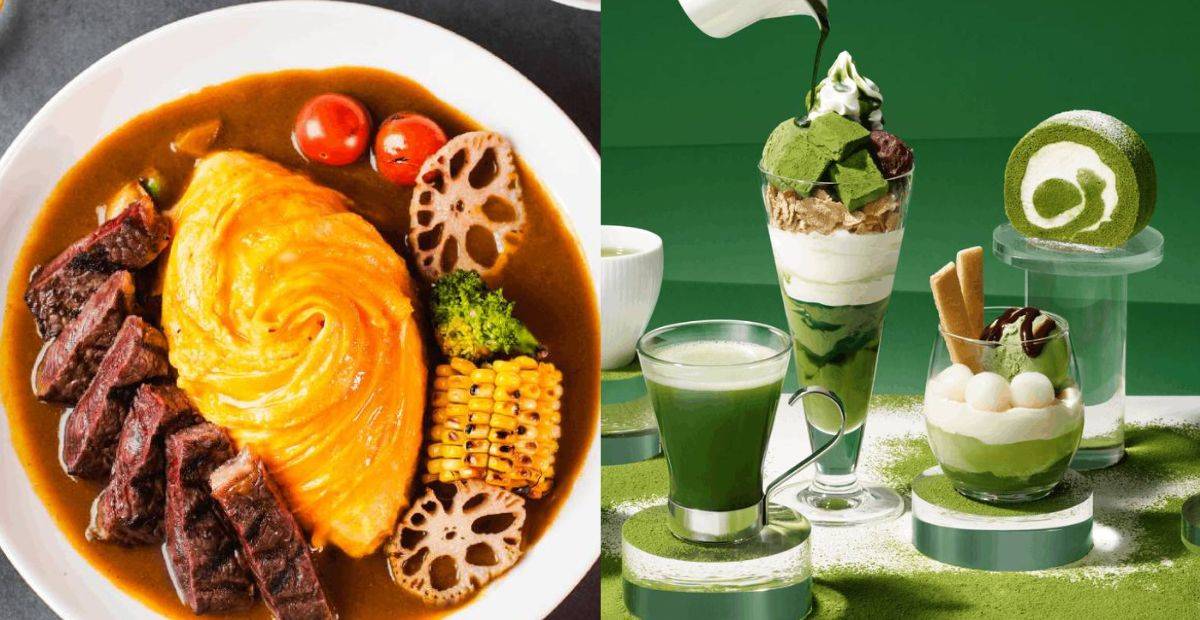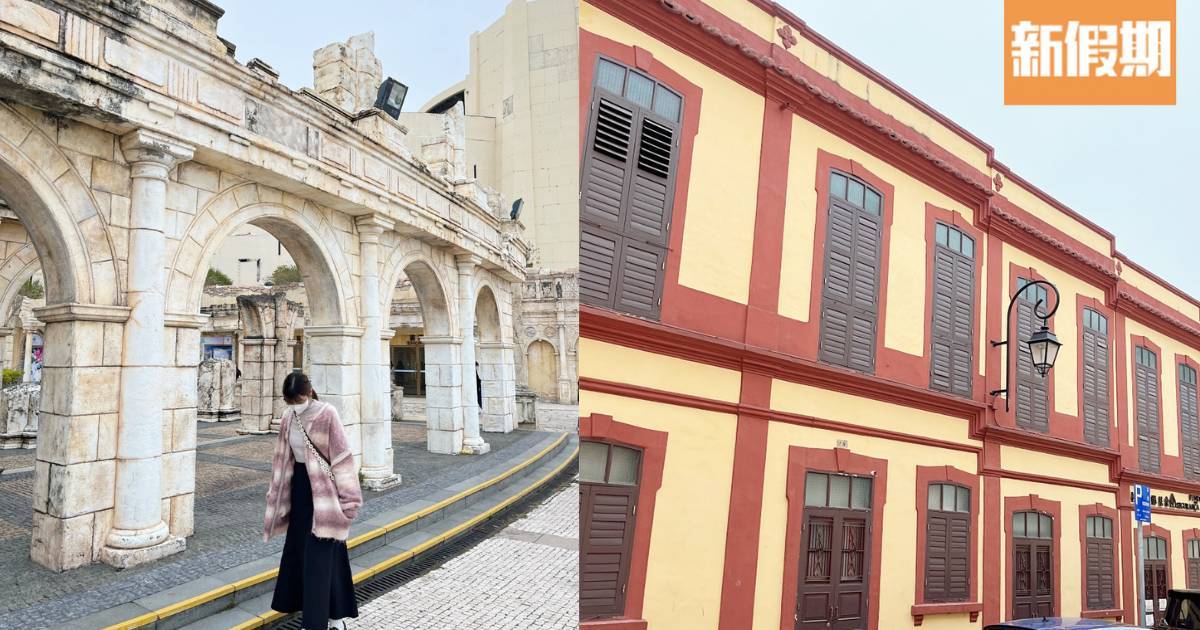Wong Tai Sin Festival: Origins + Customs in Hong Kong
Wong Tai Sin Festival
Wong Tai Sin Festival| Introduction
Wong Tai Sin Festival| Areas
Wong Tai Sin Festival| Era
Wong Tai Sin Festival| Date
Wong Tai Sin Festival| Historical evolution
Wong Tai Sin Festival| Events
Wong Tai Sin Festival| Introduction
The folk religion of Wong Tai Sin originated in the Jinhua area of Zhejiang Province and was introduced to the Lingnan region during the Ming and Qing dynasties. In Hong Kong, the foundation of Wong Tai Sin beliefs and customs can be traced back to 1915. In 1921, Sik Sik Yuen was formally established to manage the affairs of the Wong Tai Sin Temple. Over the course of a century, the Wong Tai Sin faith has developed a unique combination of religion and charity, spreading widely in Hong Kong and overseas Chinese communities. Sik Sik Yuen has continuously adapted to societal changes and established various social services, embodying the spirit of “benevolence, moral persuasion, and fulfilling every wish.” In 2014, Wong Tai Sin beliefs and customs were included in the fourth national list of representative intangible cultural heritage projects.
Wong Tai Sin Festival| Areas
Wong Tai Sin, Kowloon
Wong Tai Sin Festival| Era
Early 20th century to Japanese Occupation
Wong Tai Sin Festival| Date
The 23rd day of the eighth lunar month
Wong Tai Sin Festival| Historical evolution
Wong Tai Sin folk beliefs revolve around the Taoist immortal Wong Chuping. The earliest records of Wong Chuping’s deeds can be found in Ge Hong’s “Biographies of Immortals” during the Eastern Jin Dynasty. From the Eastern Jin Dynasty to the Republic of China, people worshipped and revered Wong Chuping as a Taoist deity, a god who saves lives and controls rain in the Jinhua area of Zhejiang province, making it one of the traditional folk beliefs in immortals. During the Ming and Qing dynasties, Wong Tai Sin folk beliefs spread to Lingnan (southern China) and became popular in Guangdong towards the end of the Qing dynasty.
In 1915, disciples Liang Ren’an and Liang Jun, father and son from Puqing Altar on Xiqiao Mountain in Guangdong where Wong Tai Sin was worshipped, sought refuge in Hong Kong due to war disasters. They established an altar for preaching in Central District, laying the foundation for Wong Tai Sin folk beliefs in Hong Kong. In 1921, they founded a private Daoist temple called “Chisong Xian Guan” at Zhuyuan Village in Kowloon City with “Puyi Altar” as its nameplate. It emphasized respect for Confucianism, Buddhism, and Taoism equally while establishing Sik Sik Yuen as its management organization. In 1925,”Chisong Xian Guan” was renamed “Chisong Huangxian Temple”. By 1956,Sik Sik Yuen opened up Wong Tai Sin Temple for public worship.
Sik Sik Yuen Huangxian Temple values “universal salvation through exhortation to do good”. In its early decades,it not only provided medical treatment but also assisted new immigrants during World War II,and donated funds to government Chinese charity foundations for education and temple construction, making Wong Tai Sin folk beliefs widely accepted by the public. In 1969, the area where Sik Sik Yuen Huangxian Temple is located was named Wong Tai Sin District, indicating the deep roots of Wong Tai Sin folk beliefs in Hong Kong.
In the past, Sik Sik Yuen adopted a hereditary membership system but later opened up to ordinary members. However, according to tradition, only male members were admitted. Before Wong Tai Sin’s birthday celebration, members who intended to attend had to participate in rehearsals and learn about Taoist rituals and ceremonies. Members’ family members could also attend but only as observers outside the main hall.
In addition to Sik Sik Yuen Huangxian Temple, many temples in various districts of Hong Kong also worship Wong Tai Sin for people’s worship. With the migration of Hong Kong people abroad,Wong Tai Sin folk beliefs have spread globally among Chinese communities in the form of temples,foundations,and cultural research associations,and have even attracted interest and research from foreign scholars.In recent years,Sik Sik Yuen has begun collecting and researching related cultural relics actively preparing for establishing a museum dedicated to Hong Kong’s Wong Tai Sin folk beliefs.
Wong Tai Sin folk beliefs were included in the fourth batch of national intangible cultural heritage representative list in 2014.

Wong Tai Sin Festival| Events
Wong Tai Sin Folk Beliefs
Wong Tai Sin’s folk beliefs have deeply penetrated into the lives of Hong Kong people. Many citizens have altars dedicated to Wong Tai Sin at home to ensure the safety of their families and homes. The phrase “requests will be answered” has become a consensus among the public regarding Wong Tai Sin’s folk beliefs. The belief encompasses Confucianism, Buddhism, and Taoism, bringing together believers from various backgrounds and reflecting the integration of immigrant society.
The Wong Tai Sin Temple provides divination sticks and used to offer prescriptions for those seeking advice or medicine. Some believers perform a ritual called “contracting kinship” on behalf of their young children, forming a bond with Wong Tai Sin and praying for his blessings for their growth. During the period from New Year’s Eve to the fifteenth day of the first lunar month, as well as on Wong Tai Sin’s birthday on the twenty-third day of the eighth lunar month, large numbers of people are attracted to visit the temple for blessings. In recent years, apart from organizing temple fairs, lantern festivals, and processions by Wong Tai Sin himself, Sik Sik Yuen Wong Tai Sin Temple has also become Hong Kong’s only legally recognized venue for Taoist weddings.
In terms of rituals and ceremonies, Sik Sik Yuen currently preserves “Chishong Yellow Emperor Repentance Ceremony” and “Puqing Youke,” which were inherited from Guangdong Xiqiao Puqing Altar; as well as scriptures such as “Qitian Dashi Repentance Ceremony” and “Wei Xianshi Repentance Ceremony,” which were compiled in Hong Kong in 1943. Based on principles that respect all three religions (Taoism, Buddhism,and Confucianism), there are celebratory rituals held during important dates related to these three religions throughout each year.
Wong Tai Sin Birthday Celebration
Every year on the twenty-third day of the eighth lunar month, Wong Tai Sin’s birthday is celebrated. The ceremony begins at noon, led by the main celebrant followed by directors wearing red robes and members wearing blue robes. Outside Chishong Wong Tai Sin Temple, female family members of the members follow them to kneel and recite scriptures. After completing the ritual and waiting for all members to leave, they enter the temple to offer incense and pay respects.
The main celebrant performs rituals outside the temple gate such as lighting a large incense stick, performing three bows with nine prostrations, washing fish (symbolic act), reciting Linlang Praise and other texts. Then, inside and outside the temple area, purification is performed using prayers to cleanse impurities from heaven and earth. Prayers are recited while offering incense. The main celebrant offers five offerings including flowers, fruits,and wine; then everyone sings praises to Wong Tai Sin while reading scriptures such as Chishong Yellow Emperor Scriptures,Baojing (Precious Sutra),and Baogao (Precious Decree). The main celebrant reads a prayer in Chinese before offering packages containing chicken meat,fuk meat (roasted pork),and precious silk fabric. Outside the temple,during 24 strikes of bells and drums,everyone sings birthday praises,and each member receives a cup of wine which they offer to Wong Tai Sin without pouring it on the ground.They can drink it after blessing nearby members or let their family members outside drink it.Then,the main celebrant distributes talismans from Wong Tai Sin to departing members.Underneath sounds of gongs and drums,everyone leaves in an orderly manner.The birthday celebration ceremony is completed.
What is the origin of the Wong Tai Sin folk religion?
The Wong Tai Sin folk religion originated in the Jinhua area of Zhejiang Province.More Details Wong Tai Sin Festival
When was the Wong Tai Sin belief and customs recognized as Intangible Cultural Heritage?
The Wong Tai Sin belief and customs were recognized as Intangible Cultural Heritage in 2014.More about Wong Tai Sin Festival







